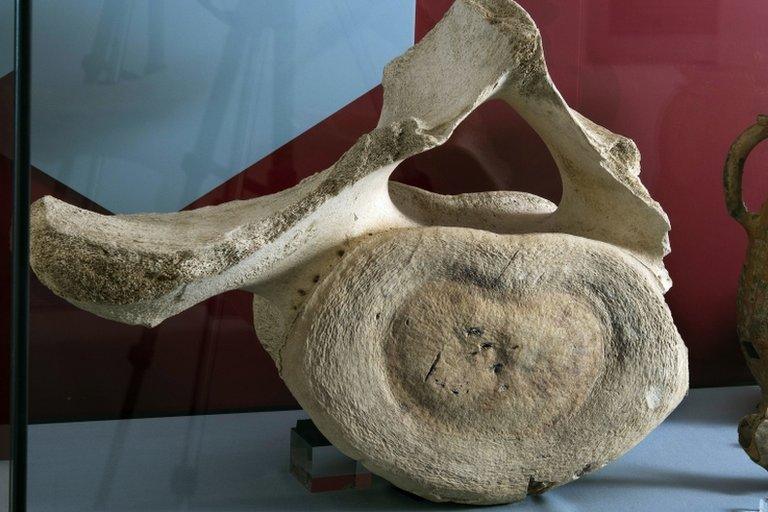Cornwall: Rare medieval whale bone goes on display at Launceston Castle
- Published
- comments

Rare medieval whale bone is believed to be from the 13th century
A rare medieval whale bone has gone on display in Cornwall in south-west England.
The 13th century bone, which measures more than half a metre across was discovered during excavation work at Launceston Castle.
It's one of around 20 different bones found scattered near the kitchen of the fortress.
Experts think the find could point to the exotic diet eaten by the castle's medieval residents!
What did experts find?
The bones were found at Launceston Castle in Cornwall
English Heritage, who own the site, said the 700-year-bone was a "puzzling discovery" but its existence tells us more about the grand celebrations that took place when the castle was an aristocratic residence.
Dr Ian Leins, from the charity said: "We know the bones date to the 13th century and at this time the castle was owned by Richard, Earl of Cornwall, who was King Henry III's brother and one of the wealthiest men in Europe.
"On his visits to the castle, Richard hosted great feasts attended by high-ranking officials and, while abhorrent to most people today, the serving and eating of whale meat would have been a symbol of his high status and power," he added.
English Heritage said that it probably would not have been possible for people in the medieval period to catch a whale of this size, suggesting the bones came from a beached whale.
Launceston Castle served as an important fortress and centre of government in Cornwall during the 13th and 14th centuries when it was home to the Earls and Dukes of Cornwall.
It was later transformed into a prison with George Fox, founder of the Quakers, it's most famous prisoner.
